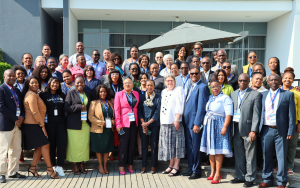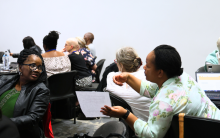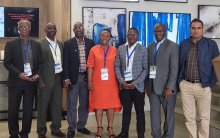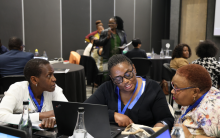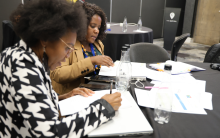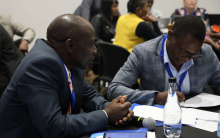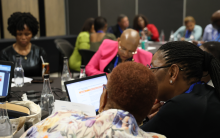Polio Outbreak Simulation Exercise (POSE) in South Africa
Polio, a disease targeted for eradication, has been a persistent focus for South Africa. In 2006, South Africa proudly received its polio-free certification, a significant milestone. However, in 2017, this status was rescinded, only to be regained in 2019. The entire African continent achieved Polio Free Certification in 2020. Nevertheless, the unforeseen challenges posed by the COVID-19 pandemic compromised vaccination efforts, leading to a resurgence of vaccine-preventable diseases (VPDs), including polio, in Southern Africa.
South Africa recognized the urgency of the situation and took proactive steps to fortify its defenses against polio. The nation developed and updated its National Polio Outbreak Preparedness and Response Plan in alignment with global Standard Operating Procedures (SOPs). This plan was meticulously designed to ensure a rapid and robust response to any potential introduction of the polio virus into the country. However, it had remained untested until recently.
The Polio Outbreak Simulation Exercise (POSE) was a pivotal undertaking aimed at evaluating the effectiveness and robustness of South Africa's response plan for polio outbreaks. This exercise, which closely replicated real-life scenarios of responding to a polio outbreak, occurred from September 4th to 8th, 2023, at The Capital in Sandton, Johannesburg. POSE involved a comprehensive simulation package and was facilitated with the valuable technical support of the World Health Organization (WHO) Regional and Country Office in South Africa. The event brought together a diverse array of stakeholders, including the National Department of Health (NDOH), the Gauteng Provincial and District Departments of Health, the National Institute for Communicable Diseases (NICD), and collaborative partners, notably, UNICEF, and Jhpiego, in addition to the National Certification Committe (NCC) Chairperson, Dr Juliet Nyasulu.
The success of POSE required intense preparations before and after the two-day simulation. Facilitators introduced seven progressive scenarios, condensed into 5 and a half hours, that replicated potential real-world challenges. In South Africa, this exercise extended to eight hours. All stakeholders, according to the national preparedness plan, assumed their expected roles and responsibilities during the simulation.
This rigorous exercise unveiled critical gaps in the country's preparedness and response plan, a revelation emphasized by the NCC Chairperson in her closing remarks. She advocated for similar exercises to be conducted in other provinces. One colleague aptly noted, "It's easy to assume we have a solid plan until it's exposed to testing. No one could have imagined that our plan had gaps and required alignment with global SOPs."
The overall ability of the country to respond to an outbreak was assessed at 56.25%, prompting the following recommendations:
- Review the national preparedness and response plan to align it with the Global Polio Eradication Initiative (GPEI) SOPs Version 4 and address identified bottlenecks.
- Implement comprehensive training on GPEI SOPs Version 4 at all levels.
- Strengthen Environmental Surveillance:
- Enhance the collection of Environmental Surveillance (ES) samples from all existing sites.
- Commence immediate supervision of ES in line with SOPs, including the use of ODK.
- Develop and execute a six-month surveillance enhancement plan to address gaps at sub-national levels.
Following the POSE, the South African team unanimously agreed to expeditiously review the country's plan to incorporate all identified gaps exposed during the exercise. This commitment is especially crucial as neighboring countries grapple with polio outbreaks, reaffirming South Africa's dedication to protecting its population and contributing to the broader global effort to eradicate polio once and for all.
